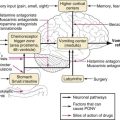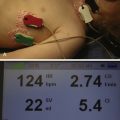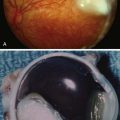The pace and complexity of modern healthcare demand decision support tools that truly empower clinicians. While clinical decision support (CDS) tools were designed to ease the burden of decision-making, many still fall short. Too many irrelevant alerts, clunky workflows, and lack of personalization mean clinicians often ignore or override these tools, limiting their impact.
The healthcare industry is shifting focus: it’s no longer enough to just have CDS tools, but to have the right tools—ones that fit seamlessly into real-world clinical workflows, reduce noise, and deliver meaningful, patient-specific guidance. In this article, we’ll dive into the top 10 clinical decision support tools that are changing the game in 2025, helping clinicians make smarter, faster, and safer decisions.
Why Better Clinical Decision Support Tools Matter
Despite advances in healthcare technology, many clinicians still struggle with decision support tools that don’t quite work for them. Alerts often come at the wrong time or flag low-priority issues, leading to “alert fatigue” where important warnings get lost in the noise. Meanwhile, rigid systems force clinicians into workflows that don’t match how care actually happens.
This disconnection wastes time, increases frustration, and can even affect patient safety. The need is clear: tools that are smart about when and how they provide support, that adapt to different specialties and care settings, and that fit smoothly into clinicians’ day-to-day routines. Without this, CDS tools risk becoming another hurdle instead of a helpful hand.
Top 10 Clinical Decision Support Tools Transforming Patient Care in 2025
- AI-Powered Diagnostic Assistants
Artificial intelligence is changing diagnostics by analyzing complex patient data such as imaging, lab results, and medical histories, to help clinicians identify potential conditions more accurately and quickly. These tools reduce diagnostic errors and speed up decision-making, especially in fast-paced environments like emergency departments. - Predictive Analytics for Patient Deterioration
Predictive models use historical and real-time data to anticipate patient deterioration such as sepsis or heart failure before symptoms become evident. Early alerts allow care teams to intervene proactively, potentially saving lives and reducing ICU admissions. - Natural Language Processing (NLP) Tools
Many vital clinical details are buried in unstructured notes. NLP technologies extract meaningful information from these narratives, making it accessible for decision support. This means no critical information gets overlooked and supports comprehensive clinical assessments. - Mobile and Remote Monitoring Applications
With healthcare extending beyond hospital walls, mobile apps and wearable devices provide continuous monitoring of vital signs and chronic conditions. These tools support telehealth initiatives and enable clinicians to make informed decisions for patients wherever they are. - Context-Aware Alert Systems
Traditional CDS tools often flood clinicians with alerts, many of which are irrelevant. Context-aware systems prioritize alerts based on patient specifics and clinical urgency, cutting down on noise and helping clinicians focus on what truly matters. - Genomic Data Integration Tools
Personalized medicine is gaining ground, with genomic data playing a crucial role. Tools that integrate genetic information help clinicians tailor treatments to individual patients, improving effectiveness especially in fields like oncology. - Clinical Pathway and Protocol Engines
These tools embed evidence-based care pathways directly into workflows, guiding clinicians through complex protocols step-by-step. This promotes consistency and adherence to best practices, reducing variability in care. - Patient Engagement and Education Platforms
Empowered patients are key to successful outcomes. Platforms that provide personalized health information and reminders encourage adherence to treatment plans and foster active participation in care decisions. - Decision Support for Chronic Disease Management
Chronic conditions require ongoing monitoring and adjustments. Specialized CDS tools assist clinicians in managing diseases like diabetes and hypertension by aggregating patient data and suggesting optimized treatment plans. - Regulatory Compliance and Risk Management Tools
Navigating complex healthcare regulations is essential. CDS systems that integrate compliance checks help reduce legal risks and ensure care delivery aligns with standards like HIPAA and CMS requirements.
Why Custom CDS Solutions Work?
Most clinical decision support tools available today come as generic solutions designed to fit all users. Healthcare, however, is highly diverse, and every hospital, clinic, and specialty operate differently. This is why many CDS tools end up ignored, overridden, or simply frustrating to use.
Custom healthcare software changes the game. It allows organizations to build CDS solutions that fit their workflows perfectly reducing irrelevant alerts, aligning with how clinicians actually work, and integrating smoothly with existing systems. Instead of forcing clinicians to adapt to the software, the software adapts to clinicians.
When CDS tools are tailored, clinicians spend less time wrestling with alerts and more time focused on patients. Decisions happen faster, errors decrease, and care improves.
In a healthcare landscape that constantly evolves with new regulations, treatments, and technologies, custom software gives organizations the agility to keep decision support tools effective and relevant. It is the difference between a tool that feels like a hurdle and one that acts as a partner in care.
Conclusion
Clinical decision support tools play a vital role in modern healthcare, and their true value emerges when they integrate seamlessly into everyday clinical workflows. Off-the-shelf solutions often miss the mark by overlooking the specific challenges and unique processes within each healthcare setting.
Utilizing custom healthcare software solutions enables organizations to build clinical decision support tools that grow with their evolving needs, adapt to new care models, and incorporate the latest clinical research. This adaptability helps care teams stay ahead in a fast-changing healthcare landscape.
Investing in tailored CDS tools goes beyond technology—it empowers healthcare professionals to deliver safer, more personalized care. When designed effectively, these tools act as a trusted partner, supporting clinicians in making decisions with accuracy and confidence.





